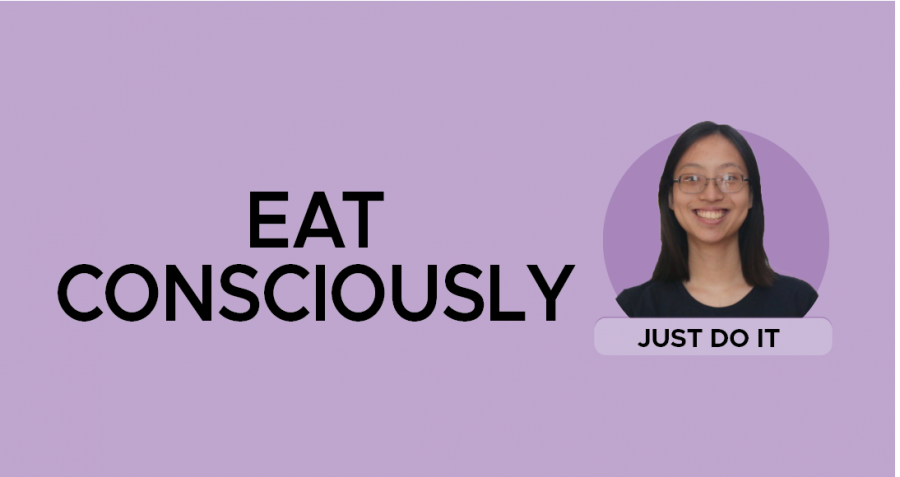The summer before junior year, I interviewed several sources for a HiLite story about veganism, and the more I researched about plant-based diets, the more I realized the existence of a popular misconception—that meat is essential to a healthy diet. A very thought provoking comment from one of my interviews was that we can eat raw plants, raw fruit, raw fish, even raw eggs, but raw meat? This raises the question of whether humans were meant to eat meat in the first place, especially given our lack of carnassial teeth and the health risks linked to red meat. Moreover, while vitamin B-12 is one of the only necessary nutrients unique to animal products, it can be found in foods other than meat, not to mention the option of supplementary vitamins: Fish, eggs, and dairy are excellent sources of B-12, and many who eat plant-based diets actually have better and more balanced nutrient intake overall. It is also important to note that, according to the U.S. Department of Agriculture (USDA), human consumption of meat has increased inordinately over the years, correlated with increased economic development.
In other words, meat is a dietary luxury rather than a dietary necessity.
However, personal health is only one of the many benefits that come with a plant-based diet. There is the issue of animal cruelty; the deplorable treatment of livestock animals is well-documented. Agriculture is also an extensive contributor of greenhouse gases due the release of methane gases from cattle as well as other factors, and an increased consumer interest in plant-based diets can encourage corporate trends to move toward more sustainable options.
Even so, starting a stricter plant-based diet such as veganism, vegetarianism, or pescetarianism may seem daunting, but there is no need for an all-or-nothing mindset. Personally, I’ve been eating a flexible plant-based diet ever since writing the HiLite story over a year ago, where rather than imposing allergy-like restrictions on myself, I treat meat as junk food—a luxury. Just as I rarely eat ice cream but will occasionally indulge, I do the same with meat. This can be beneficial in certain situations; for instance, when eating at someone’s house, I don’t feel obligated to decline their cooking if it includes meat products. Having an adaptable approach can also be helpful for those who have health or other restrictions that prevent them from going fully vegetarian or vegan.
Whether it be a disciplined vegan diet or a more flexible plant-based diet, it’s ideal to find a plan that fits you best. Yet regardless of method, please consider phasing out meat from your meals this “Meatless May,” given the many benefits ranging from personal to global.

































![AI in films like "The Brutalist" is convenient, but shouldn’t take priority [opinion]](https://hilite.org/wp-content/uploads/2025/02/catherine-cover-1200x471.jpg)









































![Review: “The Immortal Soul Salvage Yard:” A criminally underrated poetry collection [MUSE]](https://hilite.org/wp-content/uploads/2025/03/71cju6TvqmL._AC_UF10001000_QL80_.jpg)
![Review: "Dog Man" is Unapologetically Chaotic [MUSE]](https://hilite.org/wp-content/uploads/2025/03/dogman-1200x700.jpg)
![Review: "Ne Zha 2": The WeChat family reunion I didn’t know I needed [MUSE]](https://hilite.org/wp-content/uploads/2025/03/unnamed-4.png)
![Review in Print: Maripaz Villar brings a delightfully unique style to the world of WEBTOON [MUSE]](https://hilite.org/wp-content/uploads/2023/12/maripazcover-1200x960.jpg)
![Review: “The Sword of Kaigen” is a masterpiece [MUSE]](https://hilite.org/wp-content/uploads/2023/11/Screenshot-2023-11-26-201051.png)
![Review: Gateron Oil Kings, great linear switches, okay price [MUSE]](https://hilite.org/wp-content/uploads/2023/11/Screenshot-2023-11-26-200553.png)
![Review: “A Haunting in Venice” is a significant improvement from other Agatha Christie adaptations [MUSE]](https://hilite.org/wp-content/uploads/2023/11/e7ee2938a6d422669771bce6d8088521.jpg)
![Review: A Thanksgiving story from elementary school, still just as interesting [MUSE]](https://hilite.org/wp-content/uploads/2023/11/Screenshot-2023-11-26-195514-987x1200.png)
![Review: "When I Fly Towards You", cute, uplifting youth drama [MUSE]](https://hilite.org/wp-content/uploads/2023/09/When-I-Fly-Towards-You-Chinese-drama.png)
![Postcards from Muse: Hawaii Travel Diary [MUSE]](https://hilite.org/wp-content/uploads/2023/09/My-project-1-1200x1200.jpg)
![Review: "Ladybug & Cat Noir: The Movie," departure from original show [MUSE]](https://hilite.org/wp-content/uploads/2023/09/Ladybug__Cat_Noir_-_The_Movie_poster.jpg)
![Review in Print: "Hidden Love" is the cute, uplifting drama everyone needs [MUSE]](https://hilite.org/wp-content/uploads/2023/09/hiddenlovecover-e1693597208225-1030x1200.png)
![Review in Print: "Heartstopper" is the heartwarming queer romance we all need [MUSE]](https://hilite.org/wp-content/uploads/2023/08/museheartstoppercover-1200x654.png)




